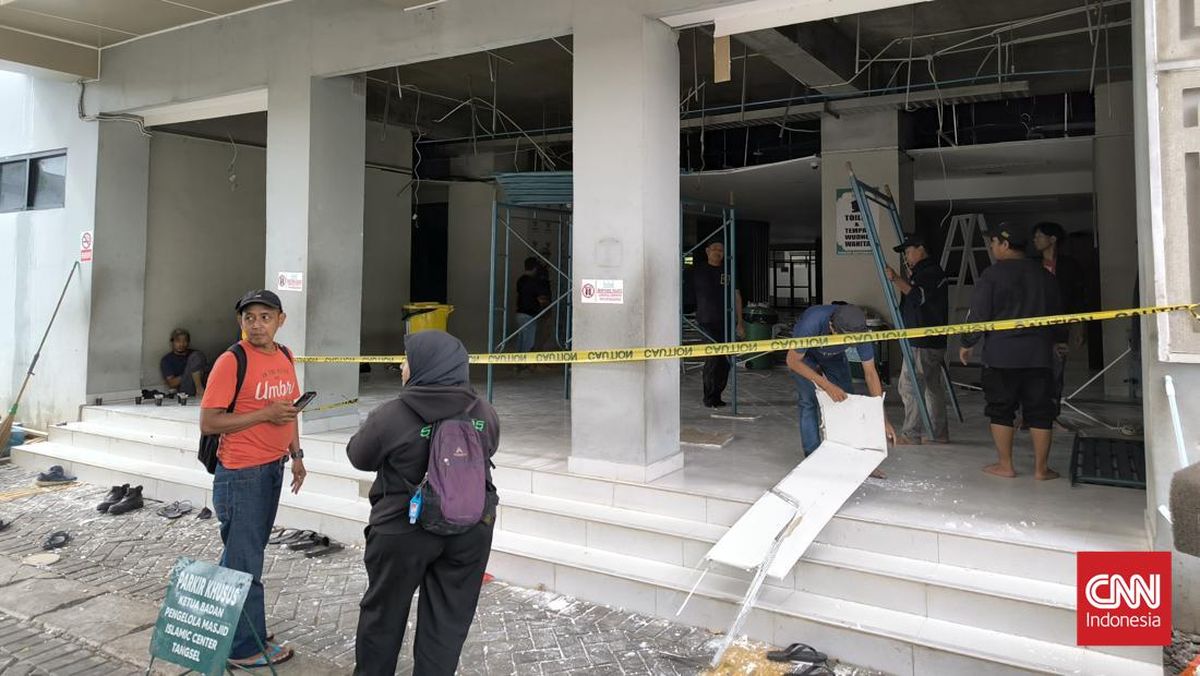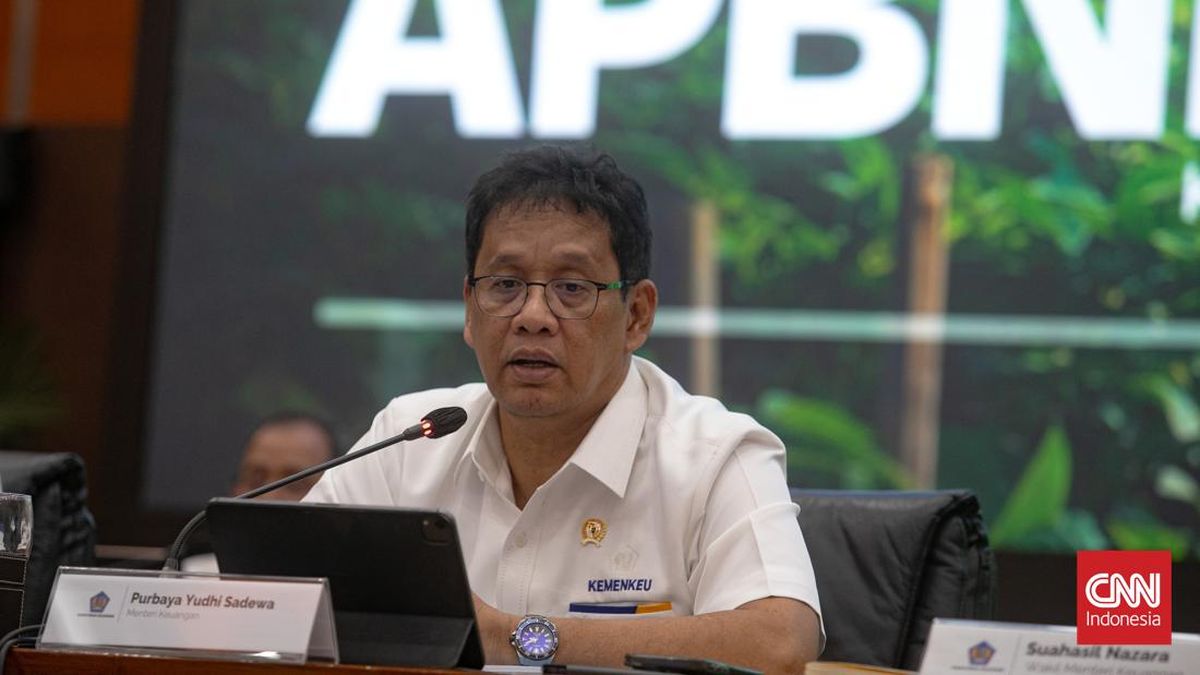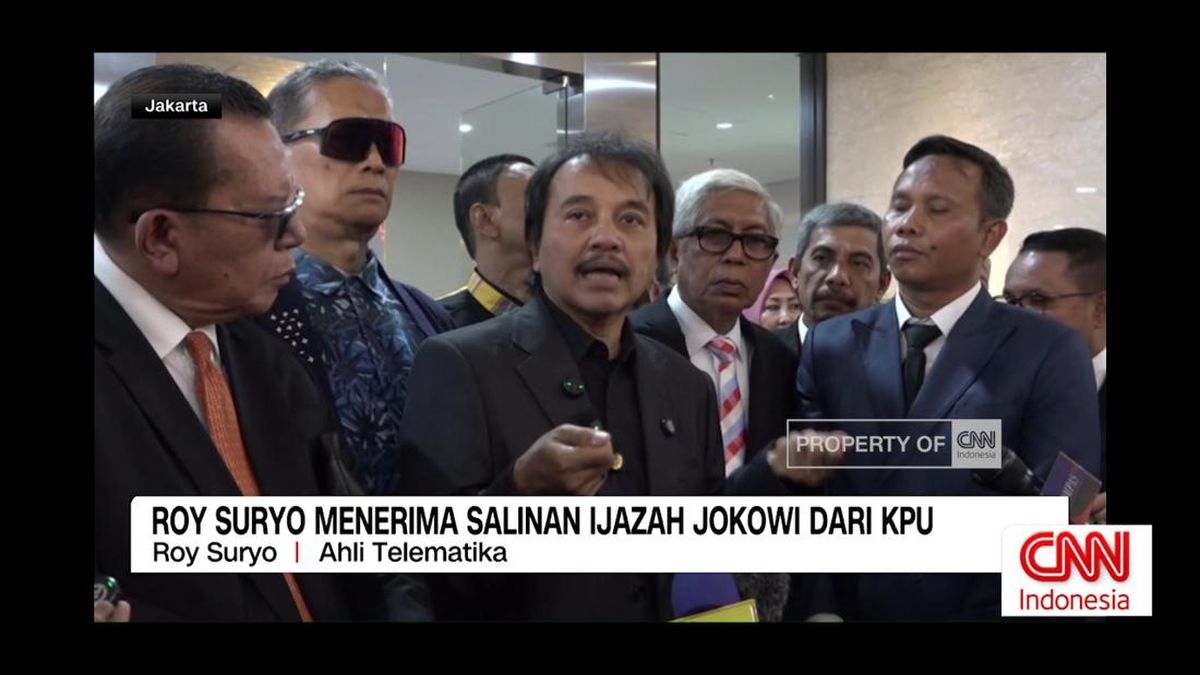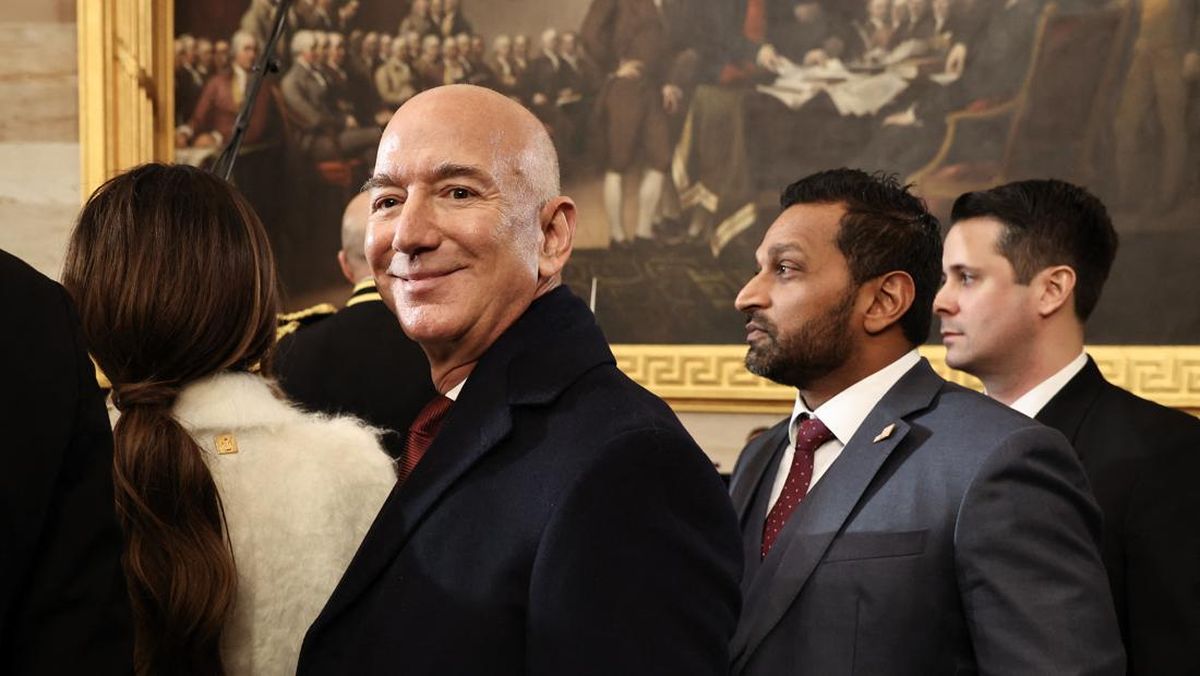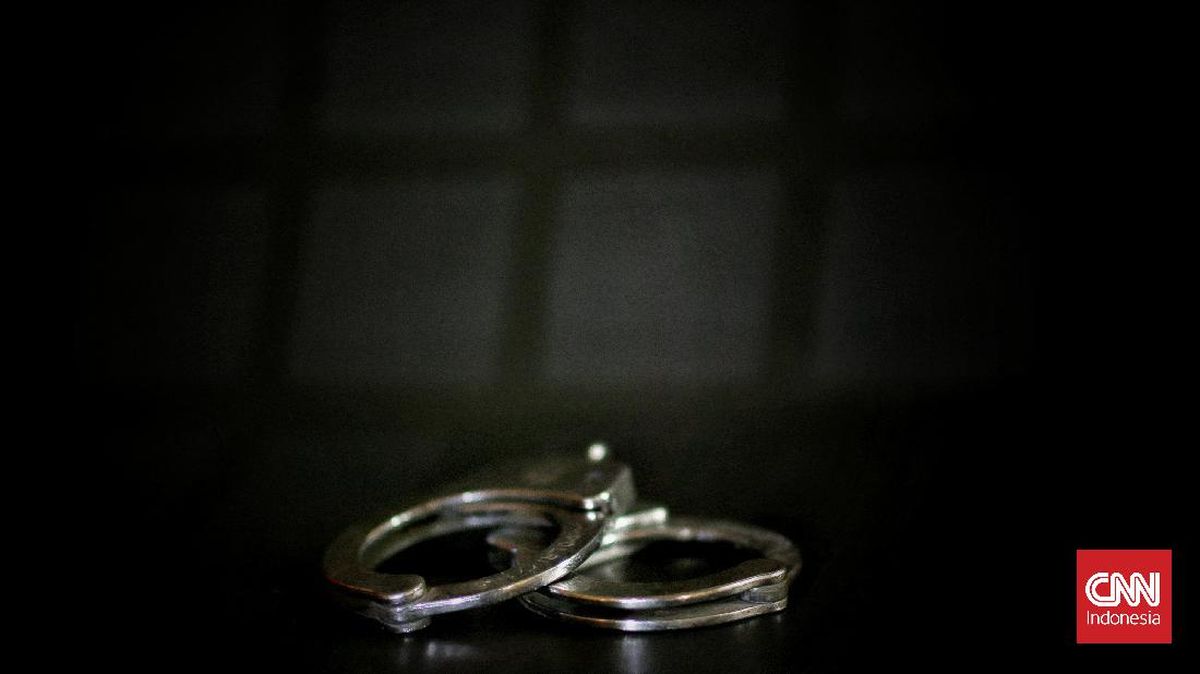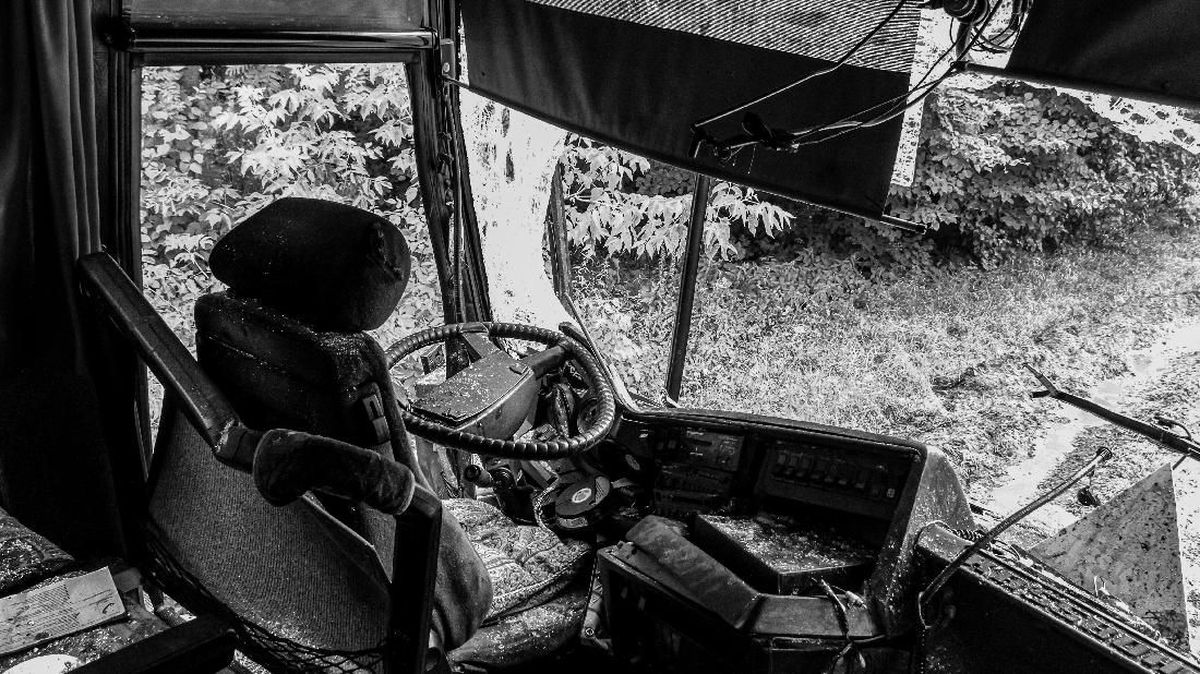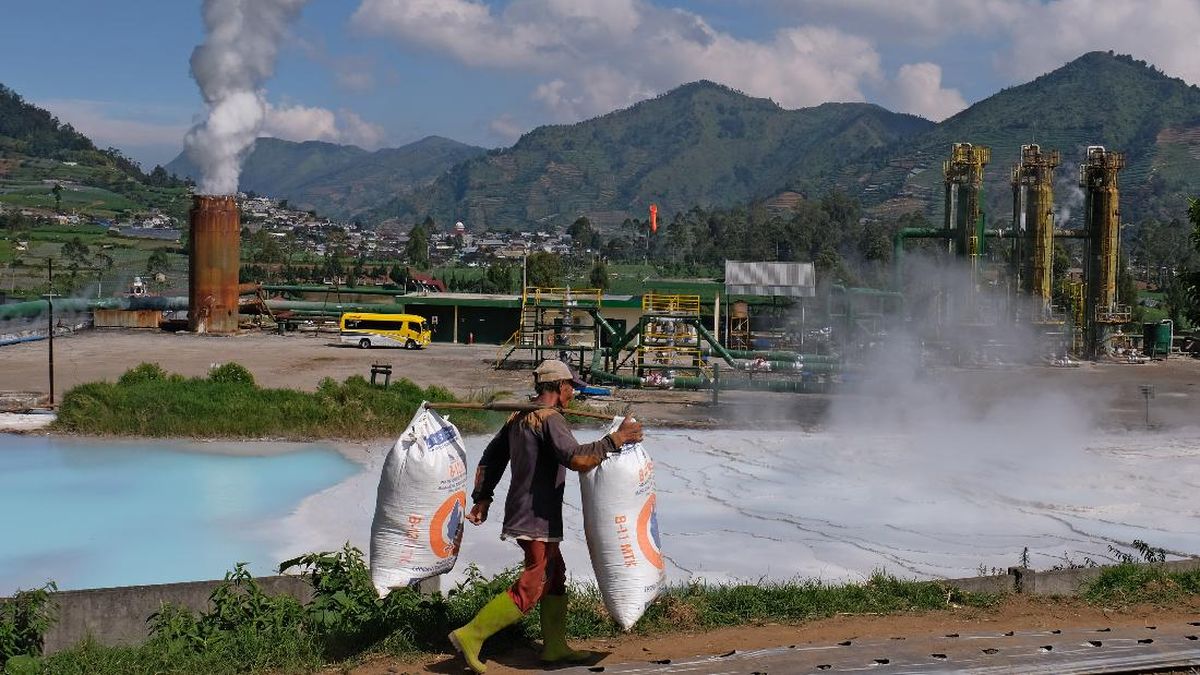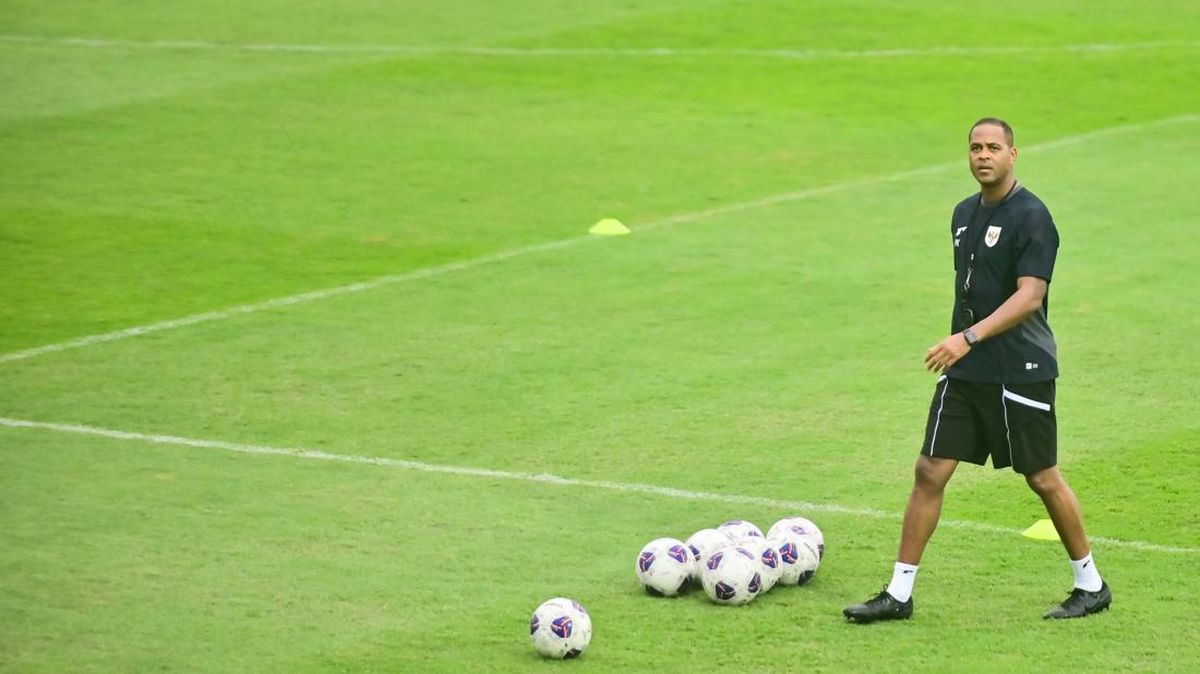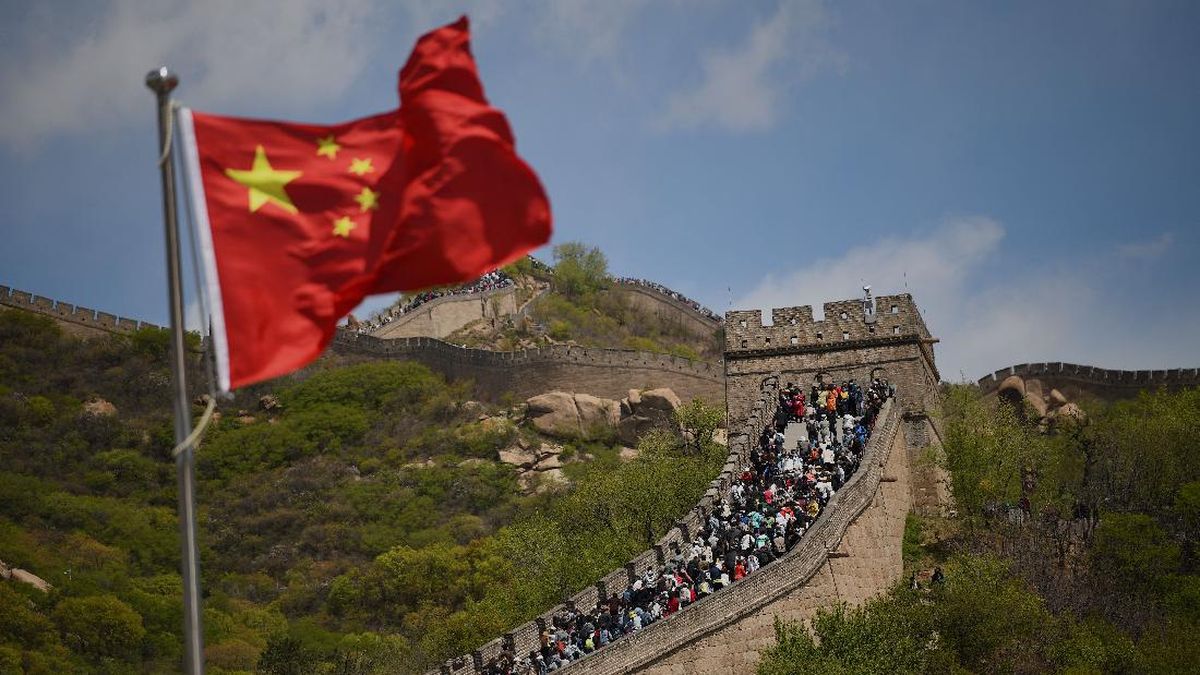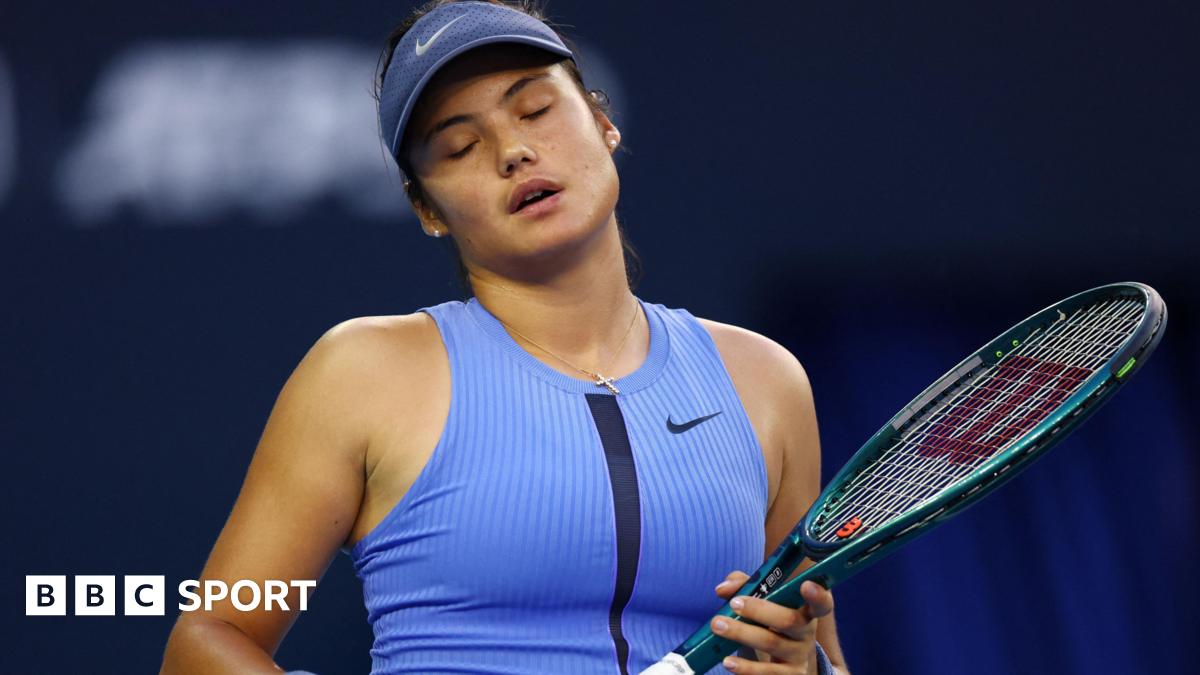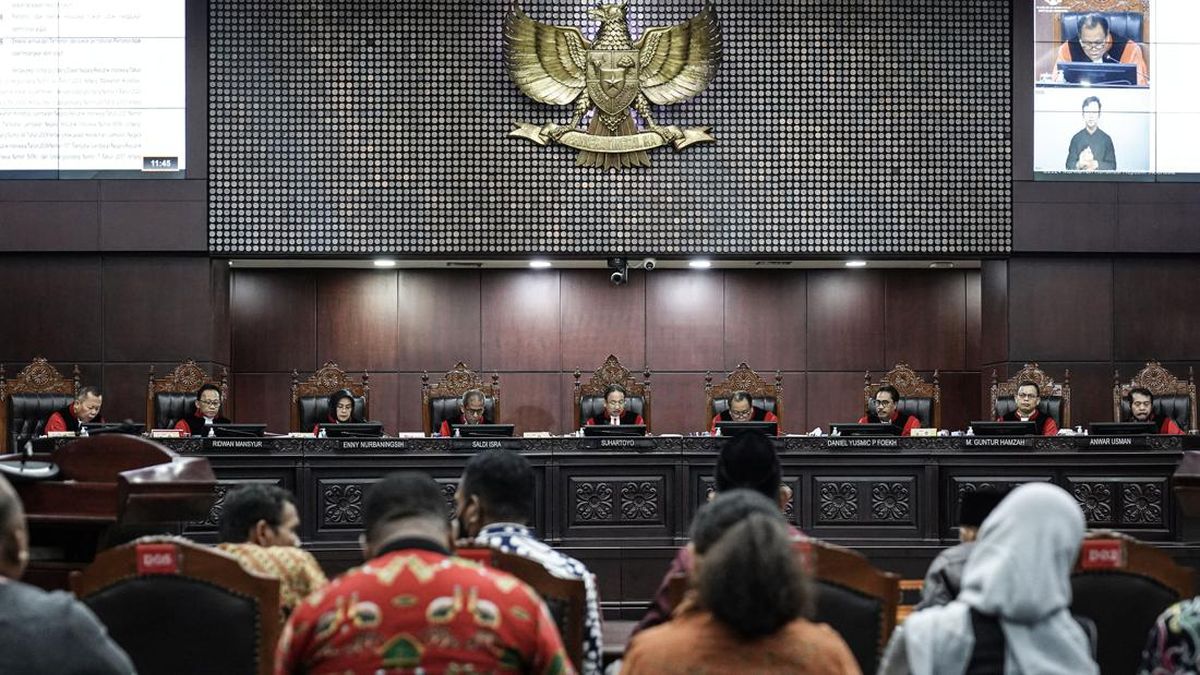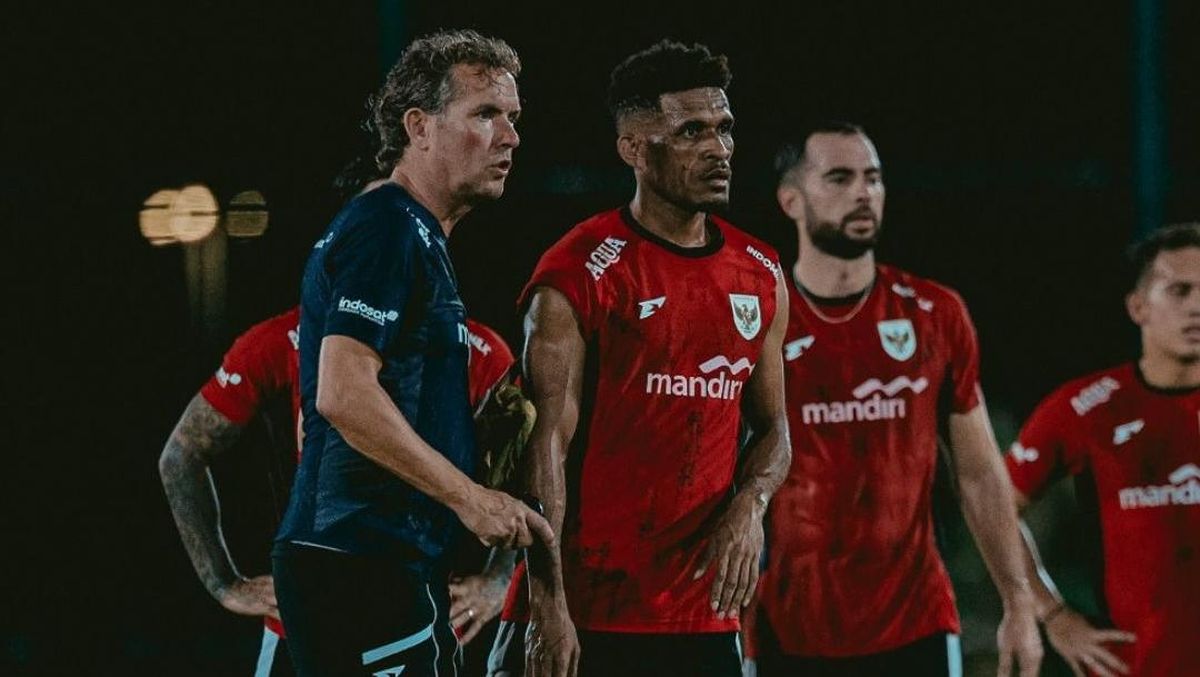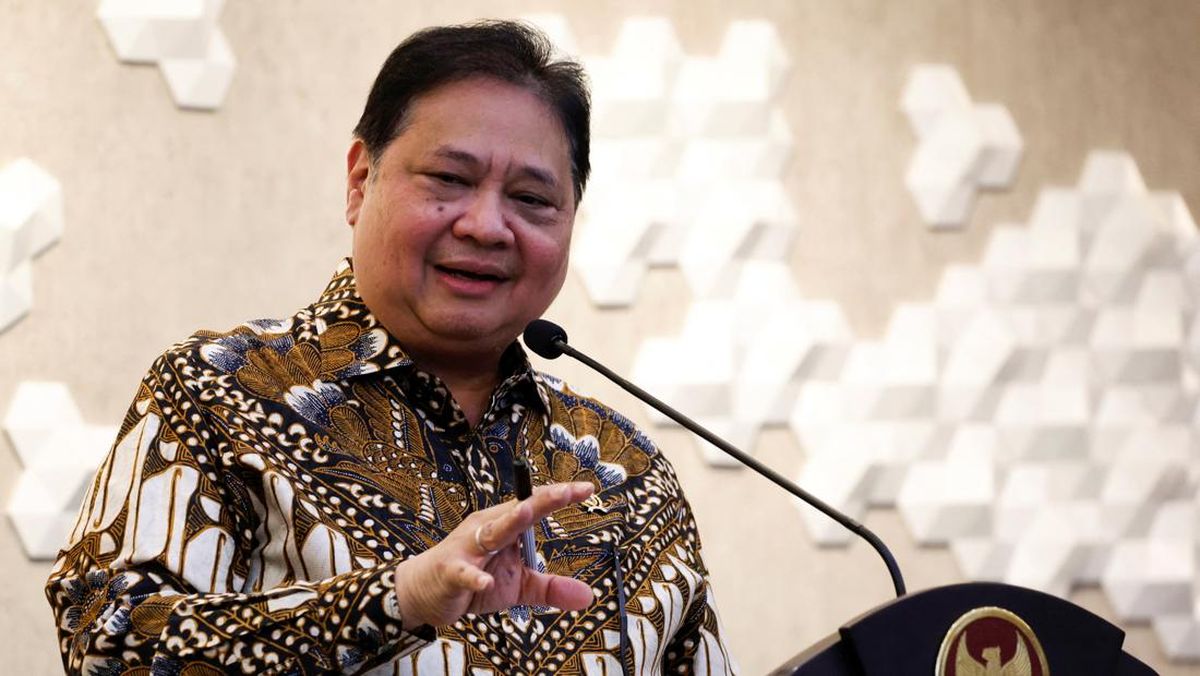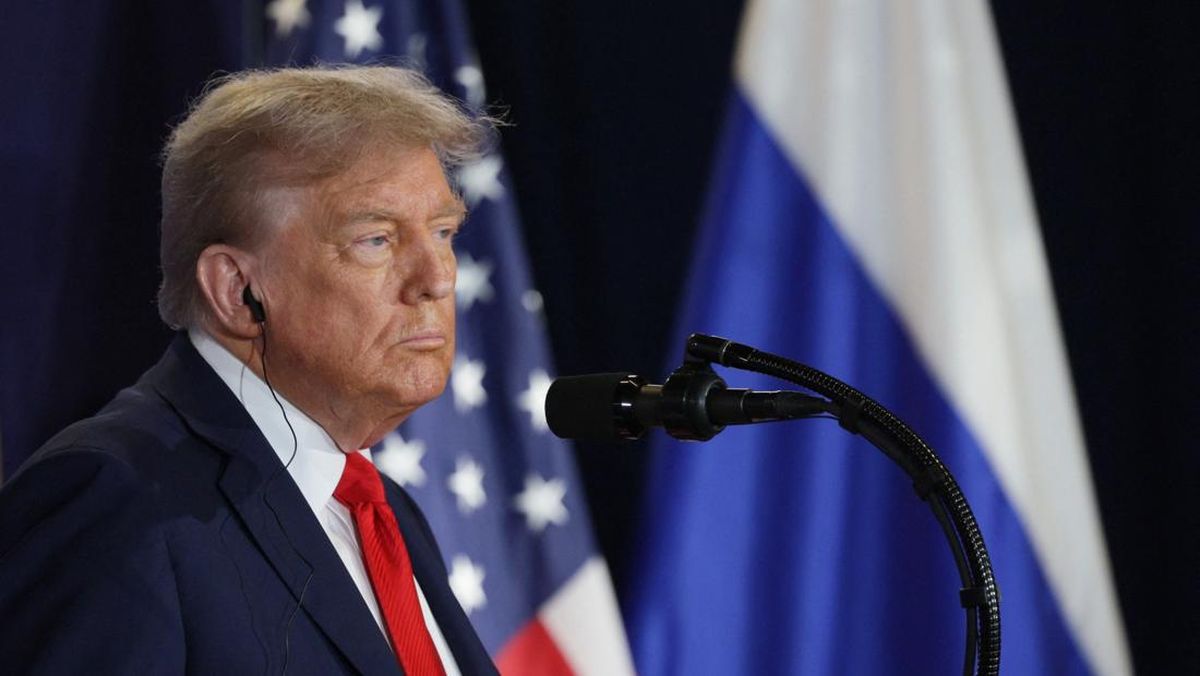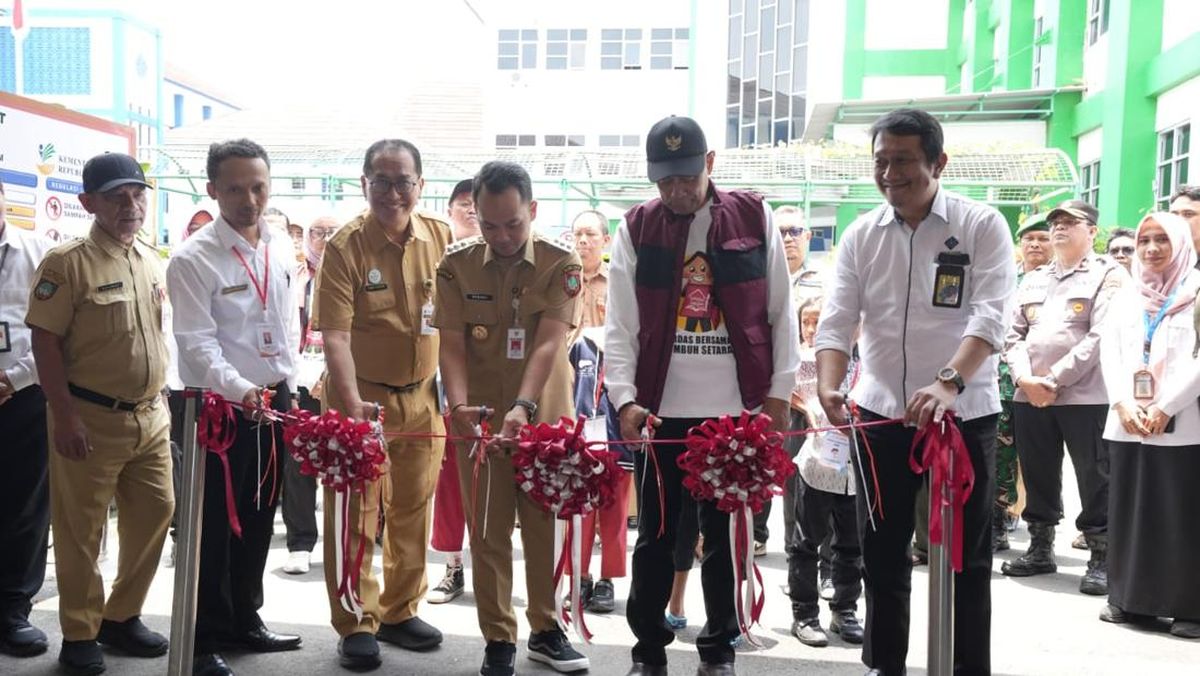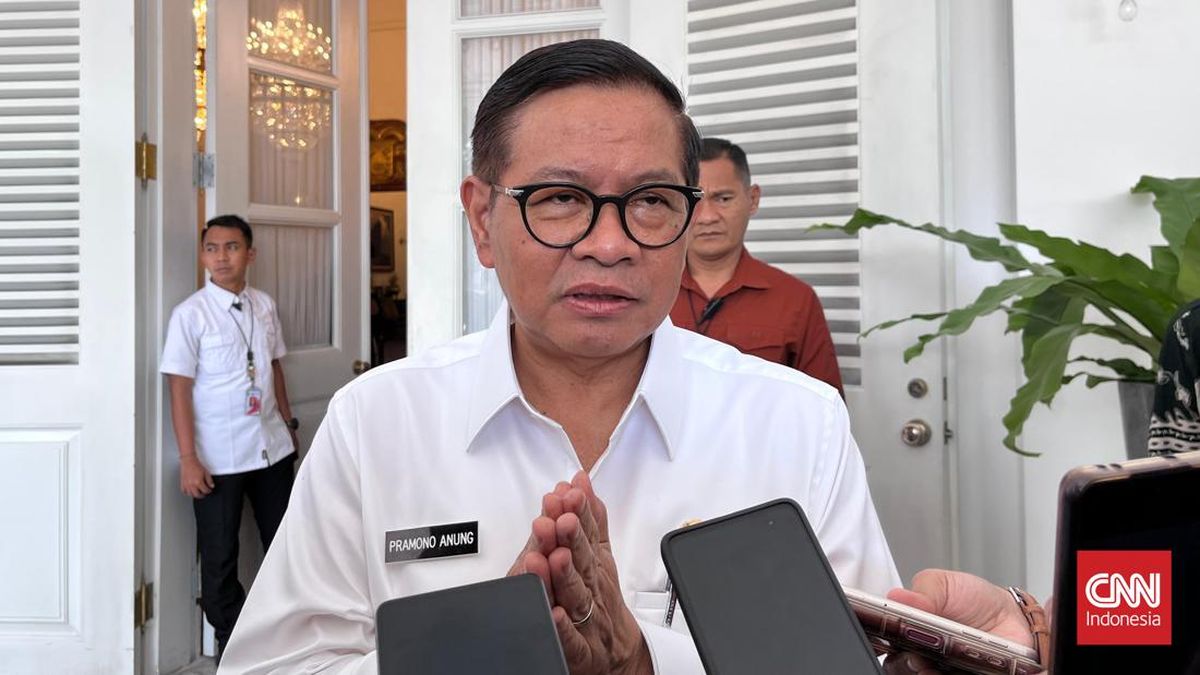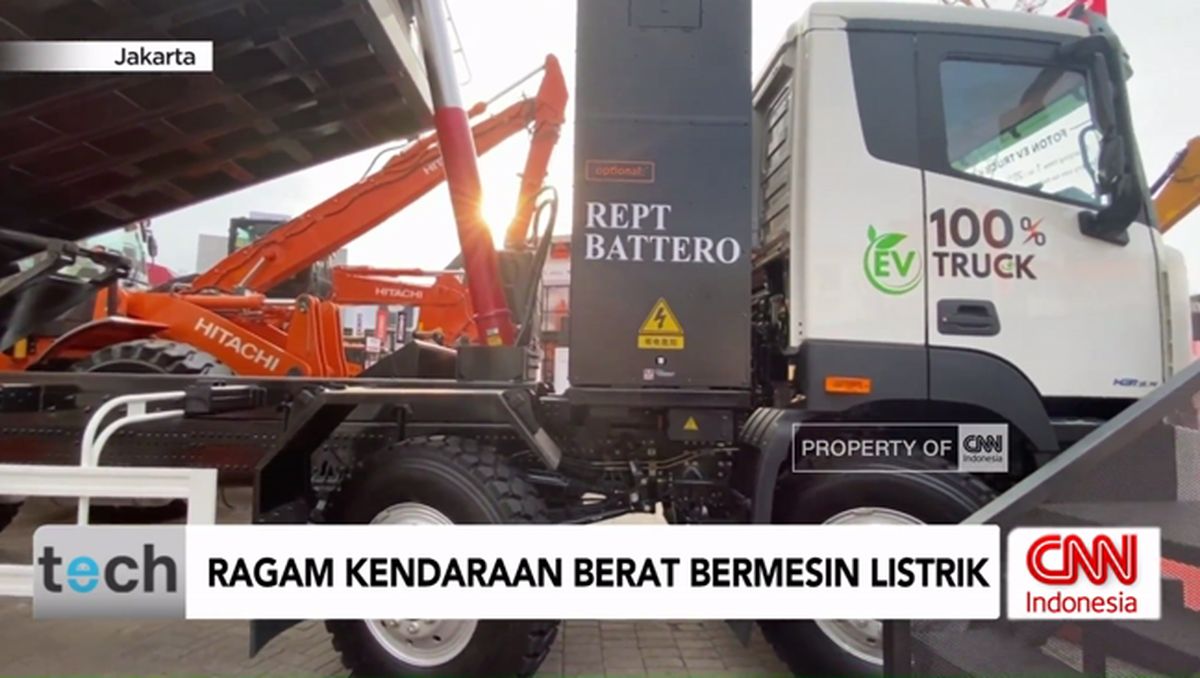California's controversial plan to redraw its congressional maps mid-decade is among the most pressing issues discussed by candidates in the 2026 gubernatorial race.
Proposition 50, placed on the ballot by the state legislature for a November special election, would authorize California lawmakers to redraw the state's congressional districts before the 2030 Census.
The redistricting effort, backed by Democratic Gov. Gavin Newsom, would shift five of the state's U.S. House seats to be more favorable to Democrats in next year's midterm elections. California Democrats call it a countermeasure to Texas' recent redistricting, which favors Republicans in the midterms.
Unlike in Texas, California voters took the power to draw these maps away from lawmakers in 2020 and established an independent redistricting commission. Proposition 50 would give that power back to lawmakers for the next five years.
Over several weeks in September, CBS News California Investigates sat down with each candidate to ask questions on a variety of issues that matter to voters, including Proposition 50.
While Democratic candidates generally backed Proposition 50 along party lines, some admitted unease when pressed on the details. Republican and Green Party opponents defended their opposition as they responded to arguments in favor of the measure.
Candidates for California governor talk congressional redistricting, Proposition 50 by CBS News Sacramento on YouTube
What do you think of the governor's plan?
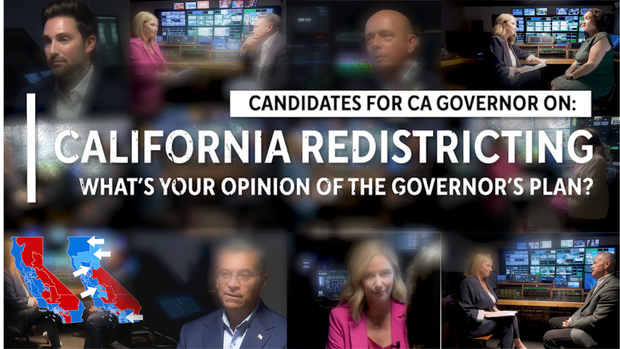
Candidates shared their views with CBS California Investigates on Governor Newsom's Prop 50 redistricting proposal. At the time of the interviews, Democratic leaders framed it as a plan to "Stop Trump's Power Grab.
Former Attorney General Xavier Becerra, a Democrat who served as Health and Human Services Secretary in the Biden administration, defended the plan as necessary to protect California's voice in Washington, saying it would "make sure that Donald Trump doesn't put his thumb on the scale on the votes in Congress."
Republican candidate Steve Hilton condemned the plan, saying outright that it is "totally corrupt and it's unconstitutional and it is illegal."
"Politicians shouldn't draw their own maps," Hilton said. "I mean, that's obviously wrong and corrupt. Common sense tells you that."
Former state Assemblymember Ian Calderon, also a Democrat, said he supports the plan and emphasized California's position as a donor state.
"At the end of the day, if we're going to have hope of any type of leverage throughout the next couple of years during Donald Trump's presidency, it would be really helpful if Democrats controlled Congress, so that we could fight back and secure the money that is coming to California," Calderon said.
Republican candidate Leo Zacky called the proposal "unconstitutional," criticizing the avenue the state has taken to redraw its districts.
"The way that it's set up is that we, the people, are supposed to figure out how the districts are supposed to be drawn," he said. "[Newsom is] violating the Constitution. He's spending a ton of money doing it. It's trash. It's a waste."
Green Party candidate Butch Ware accused Democrats of consolidating power under the guise of fighting Republican overreach.
"In the state of California, are y'all feeling that this has been a state that has been well-run and for your best interest? So you're going to essentially hand them the keys to make sure that they own every district in the state? You imagine thinking that you can fight fascism with fascism," Ware said.
While Democratic former State Controller Betty Yee called the redistricting effort "essential" to prevent the manipulation of elections, "as the president has asked the state of Texas to do."
"We have a process for this. It's after every decennial census… And just the idea that there is manipulation that is being directed from the top, that's going to affect California's representation, our proportionate representation," Yee said. "We have to fight that."
Superintendent of Public Instruction Tony Thurmond, who is running as a Democrat, said the redistricting effort is California's opportunity to counter "gerrymandering coming out of states like Texas."
"Not only will it give voters something better and the chance to gain five new Democratic seats. We're doing it in a way that is transparent," he said. "We're going to do it in a way that lets the voters decide."
Former Los Angeles Mayor Antonio Villaraigosa, also a Democrat, said the redistricting effort is a necessary response to Republican attempts to rig elections elsewhere.
"Let the people decide, and I'm for it. I think people have a right to challenge what's going on, this rigged election that they're trying to do," Villaraigosa said.
Businessman Steve Cloobeck, a Democrat, supported the plan and said "we have to preserve Democracy." Another Democrat, Katie Porter, who's a law professor and former member of Congress, said she is in "support of the governor's plan."
Republican Sheriff Chad Bianco of Riverside County expressed opposition.
"It's like saying murder is not acceptable, so I'm going to go murder you," Bianco said. "Let me tell you how broken something is by telling you I'm going to break it more."
Message to Californians who voted for Trump
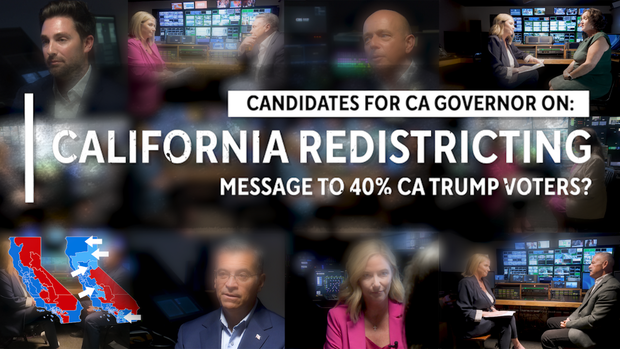
The Democratic candidates also explained their message to the roughly 40% of California voters who supported Donald Trump in 2020, voters whose political representation could be diminished under the new district maps.
The Republican and Green Party Proposition 50 opponents also defended their opposition to pro-redistricting arguments.
Becerra said he would talk to them "straight out" and emphasized his intention to win every vote. Becerra also emphasized that now is the time to stand up for the rule of law and Democracy.
"No one should do power grabs. No one is a king. No one has a right to deny you your vote," he said.
Like Becerra, Calderon said his campaign would focus on listening to all voters, not just talking at them.
"There are a lot of Republicans in the state who don't necessarily love everything Trump is doing," Calderon said. "They just want to be heard."
Thurmond echoed similar arguments, saying that many of Mr. Trump's voters may not support all of the president's policies.
"Most Americans do not support attacks on the immigrant communities or education cuts," he said. "Just because they voted for Trump doesn't mean they agree with everything."
Yee acknowledged that some voters, particularly in rural Republican districts, may feel disenfranchised.
"What I will say to them also is, look, these are areas of the state that actually want to become vital economies. These are areas that actually have probably disproportionate rates of people on Medicaid. These are parts of the states where people are relying on food assistance more than probably other parts," Yee said. "I would just say, who's going to best represent those interests when those cuts are upon you?"
Businessman Steve Cloobeck emphasized loyalty to California's interests rather than party politics.
"I would look at the polls of the state right now. The polls say protect California. Whatever the California customers want, I will be their leader and represent them," Cloobeck said.
Villaraigosa said he expects to alienate some voters on both sides, but believes many are still looking for leadership that bridges divides.
"I know there are Democrats that I might alienate in the course of this race, and there will be Republicans I alienate. There will also be Democrats and some Republicans that want a leader who's a uniter who wants to work with both sides, who wants the focus on common sense. So you win a few, you lose a few."
Porter, who has represented a swing district in Orange County, was the only candidate not to directly answer the question, taking issue with the premise that she might need republican voters to win.
"How would I need them in order to win?" Porter asked. "If it is me versus a Republican, I think that I will win the people who did not vote for Trump."
As several of her opponents noted, in California's top-two open primary system, Republican voters could help put a Democratic candidate over the top.
Porter then threatened to call off the interview, taking issue with too many follow-up questions. She ultimately stayed and continued answering questions.
Do two wrongs make a right?
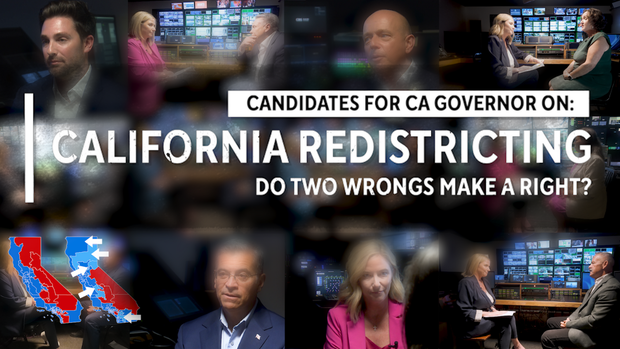
The candidates also confronted the ethical dilemma that even some Prop 50 supporters acknowledge: Does fighting one partisan maneuver with another set the wrong precedent? In other words, do two wrongs make right?
"It's let me tell you how broken something is by telling you I'm going to break it more," Bianco said.
Becerra defended the plan as necessary to protect California's voice in Washington.
"Donald Trump is afraid he's going to lose his slim majority of Republicans come 2026," Becerra said. "So he's trying to rig the process to give himself more Republicans. That is not a Democratic process. We're going to fight as we need to make sure our votes count."
Calderon offered a conflicted view, calling it "kind of a sh---- choice" but emphasizing the political stakes.
"If we're going to have hope of any type of leverage during Donald Trump's presidency, it would be really helpful if Democrats controlled Congress."
Ware warned voters not to fall for partisan manipulation.
"This doesn't serve the voters of California. It serves the DNC. It does not help us. It helps them," Ware said. "They are using Californians essentially as a prop in their battle between Democrats and Republicans."
Porter said it's not two wrongs, highlighting the nature in which Texas approached its redistricting.
"What Texas is doing is acting out of the course of the census, not following new census data… They're doing it because Donald Trump instructed them to do it," she said.
Villaraigosa said he's for letting the people decide on the matter to challenge corruption.
"I think people have a right to challenge what's going on, this rigged election that they're trying to do," he said.
Thurmond called the special election on Proposition 50 "an important moment for voters to decide."
Yee reaffirmed her stance on California's move to counter Texas' redistricting effort.
"Just the idea that there's manipulation that is being directed from the top that's going to affect California's proportionate representation, we have to fight back," she said.
Cloobeck also highlighted California's position as a donor state.
"Donald Trump's actions have been such that he wants to just attack California. He has not shown us any gratitude for all the billions of dollars of tax dollars the federal government gets from California," he said.
Hilton described the difficulty California faces in properly redrawing its congressional districts mid-decade rather than after the federal census every 10 years.
"By drawing these maps in the middle, they don't know who lives where," he said. "Millions of people have left California. In Los Angeles, whole communities have burned down. Who knows who lives there? There's no way that they can honor that constitutional requirement."
Hilton stressed that even before Newsom's redistricting effort, California already had "a massively distorted political map."
Acknowledging that Republicans make up about 40% of the vote in California but have just 17% of the congressional seats, Hilton said, "With this new plan that they've got, it would be down to 6%."
Hilton argued that those voters are being pushed out of representation altogether, saying that the plan would unfairly increase the weight of Democratic votes by as much as eight times compared to Republican ones.
"We're completely violating the principle of equal protection, the whole idea," Hilton said.
While candidates differ sharply on Proposition 50, voters will have the final say. The redistricting plan will go before voters in a special election on November 4. If approved, the new congressional maps would remain intact through the 2030 election.

Hear more from the candidates on the issues that matter to you on our CBS News California Investigates YouTube playlist: 2026 California Governor Candidates
Subscribe to our CBS News California YouTube channels and follow us on social media to hear from each candidate on the issues that matter most to you.
SUBSCRIBE & FOLLOW
Julie Watts, CBS News California Investigates: @JulieWattsTV INSTAGRAM, TIKTOK, YOUTUBE
CBS News Sacramento: @CBSSacramento INSTAGRAM, TIKTOK, YOUTUBE
CBS News San Francisco: @KPIXTV INSTAGRAM, TIKTOK, YOUTUBE
CBS News Los Angeles: @KCALNews INSTAGRAM, TIKTOK, YOUTUBE
Julie Watts is a national-award-winning investigative correspondent for CBS News, covering California. Her investigations, Capitol accountability reports, and solutions-oriented journalism air weekly on CBS stations across California.

